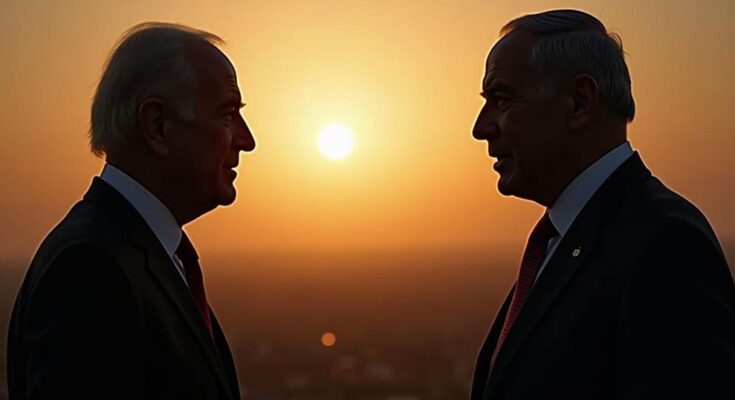The conflict in Lebanon has escalated significantly following Israeli airstrikes and the killing of Hezbollah leader Hassan Nasrallah, resulting in numerous civilian casualties and widespread displacement. Hezbollah has continued its rocket attacks on northern Israel, while the international community calls for a ceasefire. President Biden will speak with Prime Minister Netanyahu to address the situation and emphasize the need for peace.
In the ongoing crisis in Lebanon, Israeli forces have ramped up strikes following the recent killing of Hezbollah leader Hassan Nasrallah, which resulted in the deaths of several other senior commanders of the militant group. The Israeli Defense Forces (IDF) reported numerous targets associated with Hezbollah being attacked throughout the region, which has led to over one hundred casualties among civilians and the displacement of approximately 250,000 individuals seeking refuge in various shelters and with relatives. Hezbollah has retaliated with rocket fire into northern Israel, but most of these attacks have been intercepted. The group has indicated that they will cease fire only if a ceasefire is established in Gaza. Despite growing international calls for de-escalation, Israeli officials have firmly ruled out a ceasefire, emphasizing their commitment to ensure the safety of Israeli citizens residing near the Lebanese border. Significantly, oil prices have remained stable, influenced by geopolitical tensions and a substantial buffer of spare capacity within OPEC markets. Following Nasrallah’s death, prices experienced a brief surge, but analysts suggest that the market’s reaction has been tempered due to a year of ongoing conflict without any substantial disruption to oil production. In light of the escalating violence, calls from various nations and organizations such as the Gulf Cooperation Council highlight the pressing need for an immediate ceasefire to protect civilian lives and maintain regional stability. The health ministry of Lebanon has confirmed at least 105 fatalities and 359 injuries related to the recent airstrikes. Moreover, U.S. President Joe Biden has indicated a wish to prevent an all-out war and plans to engage in a telephone dialogue with Israeli Prime Minister Benjamin Netanyahu, emphasizing the necessity of maintaining peace in the region. This diplomatic interaction underscores the urgency of addressing the escalating conflict, which poses significant dangers to Middle Eastern stability.
The situation in Lebanon has intensified following Israeli airstrikes targeting Hezbollah, particularly after the killing of its leader, Hassan Nasrallah. This event has heightened tensions between Israel and Hezbollah, an Iran-backed militant group that continues to retaliate with rocket fire into Israeli territories. Lebanon has experienced severe humanitarian impacts, with substantial numbers of civilian casualties and internal displacement due to ongoing military operations. The international community, including the United States, has expressed concerns over the escalation and the potential for a wider conflict. Turkey, Egypt, and Saudi Arabia have voiced the need for respecting Lebanon’s sovereignty amidst fears of further military aggression.
The crisis in Lebanon remains critical, with ongoing conflict resulting in significant loss of life and humanitarian crises. The continued military operations by Israel and responses from Hezbollah indicate a protracted struggle, underscored by international concern and calls for ceasefire. The engagement of global powers, including U.S. diplomatic efforts, suggests a recognition that a sustainable resolution is essential not only for Lebanon but for regional peace as well.
Original Source: www.hindustantimes.com



